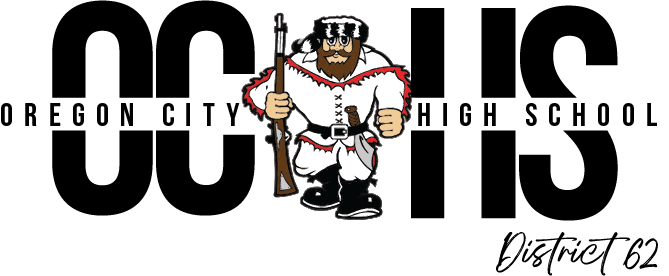Wellness Guidelines
Developed by NEWtrition Change Agents
Approved by Tom Lovell
April 2019
Oregon City High School Health and Wellness Student and Staff Guidelines
At OCHS, students and staff recognize the importance of health and wellness. Students and staff learn, study, and grow together more efficiently when positive health, wellness, and nutritional practices are present at our high school. Each of the following describes the practices and goals of our students and staff in a variety of important areas related to Health and Wellness:
1) Nutritional Practices—Students at Oregon City High School are encouraged to make healthy choices, such as fresh fruits, vegetables and whole grains. School breakfasts and lunches meet State and Federal Nutrition Standards. Students who bring food and beverages from home should bring foods that are healthy and drinks that are low in sugar-content. Students are advocates both at home and at school for healthy, nutritious options for their meals. Both students and staff realize that eating a nutritious, well-balanced breakfast, lunch, and dinner provide more energy, and focus at school.
2) Snacks, Vending Machines, the Bistro, and Pete’s Place—Healthy snacks are preferred for students and staff at OCHS. Fruits, nuts, and cheese should be consumed over chips, candy bars, and cookies. According to the Oregon Smart Snack Standards snacks consumed by adolescents in 9th through 12th grade should be lower than or equal to 200 calories. The average bag of candy is roughly 210 to 300 calories.
3) Soda and Coffee—Students and staff should avoid drinking soda and other sugary drinks. Teachers especially should model proper water consumption by drinking water, not soda, in front of students. Staff should limit intake of coffee per day and model drinking water rather than drinking coffee.
4) Water Consumption—The students and staff are encouraged to drink water regularly throughout the day. Water is our first and primary choice of drink. Teachers model water consumption. Water stations provide places for students and staff to refill water bottles. Athletes who have daily practice and competition should strive to drink additional water each day.
5) Food and Drink in the Classrooms—Healthy options within the classroom should be encouraged at all times.When a party or celebration is planned, students and staff include healthy options (such as fruit, vegetables, and water) along with anything else that is brought.
6) Mental Health—Students and staff at Oregon City High School understand the need for social/emotional well being. Students are aware of the mental health therapist and counselors on site who are able to meet with students who need additional mental health care.
7) Exercise and PE classes—Students and staff at Oregon City High School are encouraged to exercise regularly. Students must take at least 1.5 credits of PE classes and are encouraged to take a PE class each year and are encouraged to participate in sports each year. Students and staff are encouraged to exercise five times a week, for at least 60 minutes to maintain good physical health. Students and staff that regularly exercise are less likely to miss school due to illness and tend to be more alert in class.
8) Nutrition Education—Students receive Nutrition Education in Health 1. Staff and students are encouraged to be educated in nutrition and in healthy eating. Staff is encouraged to model Nutrition Education with their students through what they eat in the classroom.
9) The Pioneer Pantry — The pantry was developed at Oregon City High School to meet the needs of students who struggle with food insecurity at home. The program provides a backpack of meals and snacks to be taken home at the end of each week. Teachers and staff are encouraged to refer students to the pantry. if they have concerns about those students' ability to access sufficient food over weekends and school breaks. Signed parent/guardian permission slips are required for participation.
10) Screen time—Screen time, whether it be a phone, computer, gaming devices, or television should be kept to a minimum. Students and staff at OCHS recognize that too much screen time can affect nutrition, exercise and sleep patterns, as well as contribute to obesity.
11) Sleep Habits—The National Sleep Foundation recommends that teenagers should be getting 8-10 hours of sleep every night. Students and staff strive to get plenty of rest each night. A lack of sleep impacts student and staff attentiveness, attendance, mental and emotional states, and overall academic success.
12) Student Wellness Committee—The Newtrition Change Agents help lead and guide student and staff wellness at Oregon City High School.
